Straight Outta Compton Sw
Member
577 posts
2,128
Seen 1st June 2023
8th September 2019, 07:15 PM

Hey guys, I just had an interesting thought and I wanted to share it with you all. Read it if you want, it’s just something I’ve been pondering. I’m skipping over a lot of basics, but if there are any requests for that I can make one of those.
Let’s talk about truth. In philosophy, there are several overarching questions that philosophers try to answer. One of these is “What is true?” Another is “What is real?” Yet another is “What is right?” These questions have no objective answer, but there are many ideas and insights that philosophers have into these fields. You see, these questions are very childlike in nature. The child always looks at objects and asks “Why?” Philosophers tend to ask these basic-yet-unanswerable questions and dive deep into them with thorough, mature analysis. Therefore, the philosopher (meaning literally “lover of wisdom”) is the one who can retain his childish inquisitiveness and combine it with mature analysis. This is why wisdom often comes from the mouth of children; they ask the best questions.
I think the question of “What is true?” can hold a unique purpose in finding insights into the other two. For, as you will come to discover, analysis of truth is merely analysis of our perceptions. Once this is figured out, questions of reality and ethics can be seen in their true light. In philosophy, the study of this question of truth is known as epistemology. There are two main theories of truth, known as rationalism and empiricism, respectively.
Rationalism is the notion that reason alone is the main key to knowledge. It maintains that the criterion of truth is logical, and can be deducted without any physical external sources.
Empiricism is the notion that experience alone is the main key to knowledge. It maintains that the criterion of truth is sensory. In other words, we cannot know anything unless we sense it ourselves.
Another distinction comes in types of knowledge. Rationalists believe in a priori (Latin, “from the earlier”) knowledge. A good way to remember this is by thinking that rationalists believe you can know things PRIOR to doing them. Empiricists believe in a posteriori (Latin, “from the later”) knowledge. A good way to remember this is by thinking that empiricists believe you can only know thinks POST doing them.
The final distinction I need to make is between analytic and synthetic knowledge. This is primarily a semantic dichotomy used to distinguish types of propositions. An analytic proposition is one whose predicate is contained in the subject. For example, “all bachelors are unmarried,” is an analytic proposition. This is because the concept of a bachelor is “an unmarried man.” These are universal distinctions, and take place independent of experience. While these may sound trivial, they are also necessary for communicating language. They are merely relations of ideas. A synthetic proposition is one that's predicate is not contained in the subject. They rely on our perceptions and tell us new information about the world. For example “jacobg is writing this post,” is a synthetic proposition. The idea of writing a post is not contained in the idea of jacobg. This proposition was made using a posteriori knowledge. It is not trivial and tells us something about the world. It is not universal, either. For example the synthetic a posteriori proposition “the sun has set yesterday” will not be contradicted if the sun does not set today.
So with that in mind, we can call empiricists “ones who believe the only way to find non-trivial knowledge is through experience,” and rationalists “ones who believe that reason alone can lead to non-trivial knowledge.”
Alright, that’s great. But now that I have you where I need you, it’s time for a quick existential crisis: How do you know what you know? How can you be sure that what you see is the same as what I see? Let’s do a thought experiment: Imagine a color; let’s pick blue, for example. Picture it in your head. What if blue to you looks like red to me? What if your image of blue was different than mine? What if your experience of blue is different than mine? Now, here’s the kicker: it probably is. Or at least, it is impossible to prove that it is. If you were to describe blue to me, you might list some things that are blue, such as the sky or the shirt you’re wearing. But none of these prove that we see blue the same way. You might go further and connect it to an emotion, or a feeling. You might even go so far as to define the electromagnetic wavelengths necessary to be perceived as blue by your ocular apparatus. But none of these can satisfactorily prove that we see blue the same way.
One might be inclined to dismiss this as mere ridiculous pseudoscience, blasphemous falsehoods, or whatever else. But this poses a serious issue when trying to use empiricism. Anyone who wants to make a claim for something must first tackle what is called the burden of proof. In other words, in order to prove something is true, you need to provide relevant evidence for that claim. If something has not been proven true, it can be dismissed without any evidence required. Therefore, if someone wants to use empirical evidence to prove a claim, they must first prove that empirical evidence is valid. Since this is impossible to prove, it is therefore impossible to use empirical evidence.
Wait, no. Stop. Don’t leave. I can work this out, I promise. Let’s just establish the fact that empiricism is flawed. And rationalism is not the best for finding out new, non-trivial knowledge. Knowing what you know now, the question of “What is true?” probably sounds like a desperate cry for help. But if we take a step back, we can find a glimmer of home. If we trace that, we can find a deluge of opportunity.
Remember when I first mentioned rationalism and empiricism? Well, I did mention that those were the two main theories of truth, but they are not the only ones. Historically, they were the only ones up until about 1780. At that time, one of the most important philosophers crafted a synthesis between the two. His name? Immanuel Kant. His theory? Well, let’s go in depth here.
Imagine having a pair of spectacles attached to your eyes. They have a yellow tint so that everything you see is yellow. You don’t know this, of course, and see everything as a tint of yellow. You do not know you are not seeing the real objects, but rather only seeing them through your own biased lenses.
Alright, stop imagining, because you don’t have to. What if I told you that space and time are forms of our perceptions? What if I told you that space and time as we know it are forms of our perception, as opposed to what is real? This opens two worlds to us: the phenomenal world and the noumenal world.
The noumenal world is where objects are, independent of observation. It is what they really are without any form of tinted lenses. They are impossible for humans to see.
The phenomenal world is our observable manifestation of these objects. We see everything in three-dimensional space and one-dimensional time. Our minds can not comprehend anything higher. Even if something has a higher dimension, we can only perceive it in the one way our brains know how to: spatiotemporally (meaning, literally, “relating to space and time”). If you’re having trouble comprehending this, you should watch the movie Flatland, which deals with the topic that I like to call “dimensional ascension.”
The acceptance that we can only perceive the phenomenal world is known as transcendental idealism. We can not comprehend the absence of space, for example. We can picture an absence of objects, but there is no possible way to picture an absence of space.
Acceptance of transcendental idealism is the best way to solve our conflict of epistemology. Let me go back to the concepts of analytic and synthetic knowledge. I introduced them to be synonymous with a priori and a posteriori knowledge, but in truth this was misleading. They are two separate categories of knowledge.

There are, in fact, four types of knowledge. Of course, there is analytic a priori, which includes logical statements such as “all bachelors are unmarried;” and synthetic a posteriori, which includes empirical statements such as “the book is on the table.” The third type is analytic a posteriori, but this is not true knowledge. It is used for hypothetical statements and therefore is not a form of knowledge at all. If there is to be a priori knowledge, it must be inherently analytical.
Synthetic a priori knowledge is what we are chasing here. By definition, this is a truth which can be deduced through pure reason but contains something in the predicate not found in the subject. In other words, it is non-trivial knowledge found by reason alone. I’ll summarize many hundred pages of dense philosophy for you here (as I have been doing this whole time, but I digress) when I say the answer is found in mathematics.
Take the simple arithmetic expression “7 + 5.” Through pure reason alone, you can know that the sum of 7 and 5 is equal to 12, but the concept of 12 is not contained in either 7 or 5. Nor is the concept of 7 or 5 contained in the concept of 12. This is an example of the coveted synthetic a priori knowledge.
With synthetic a priori knowledge and transcendental idealism in our toolbox, we can solve the epistemology dilemma we were presented with earlier. But we must first accept these as presuppositions.
While I did not want to make this into a series, I also can’t continue this philosophical thread without providing you all with an adequate background into other areas of philosophy. My discovery will mean nothing to you without sufficient knowledge of metaphysics, faith, and ethics. If there are any questions, ask them below. That’s about all for now.
it was only hypothetical
Master

6,414 posts
8,754
Seen 25th August 2023
8th September 2019, 08:36 PM
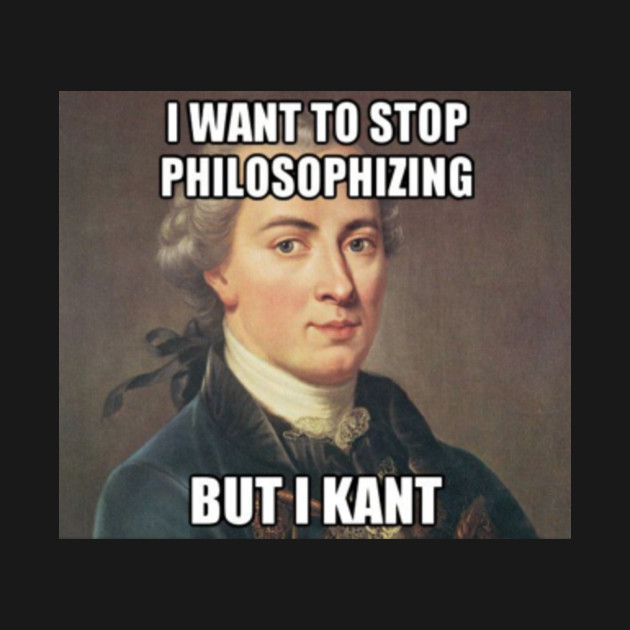
Excellent post, Jacob, but I believe that you missed a few definitions, like "predicate", you didn't really define it. A predicate, according to Kant, are the properties and attributes of the subject. Anyways, good post.
Gone

Sweet memories





Sweet memories




9th September 2019, 11:07 AM
So, space and time are forms of our consciousness? I believe dimensional ascension would be a great experience if our inner-being would go further beyond which I have no doubt in, yet we haven't taken the opportunity to have that on ourselves.
Straight Outta Compton Sw
Member
577 posts
2,128
Seen 1st June 2023
9th September 2019, 03:40 PM
Lark wrote on 8th September 2019, 07:16 PM:
Jesus christ man how long have you been writing this for
1kutya wrote on 9th September 2019, 11:07 AM:
So, space and time are forms of our consciousness? I believe dimensional ascension would be a great experience if our inner-being would go further beyond which I have no doubt in, yet we haven't taken the opportunity to have that on ourselves.
That doesn't mean that space and time are subjective. Rather, it only means that they are not noumenal. They are merely the glasses with which we view the world.
For all we know, we perceive the noumenal world exactly as it is. But there is no way to know. This leads to being able to comprehend higher dimensions; it may sound appealing, but we would need to reconfigure our structure of reality. I'm trying to think of a way to put the consequences of what would happen into words, but I think it's just too abstract. Thanks for reading the post though.































 Wolf
Wolf 

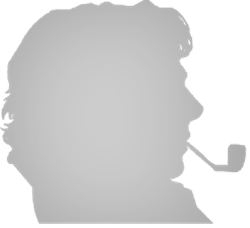

























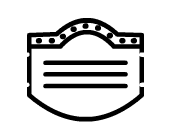

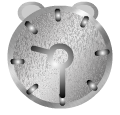



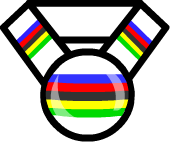





 Sushi
Sushi 









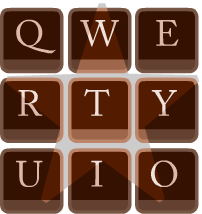
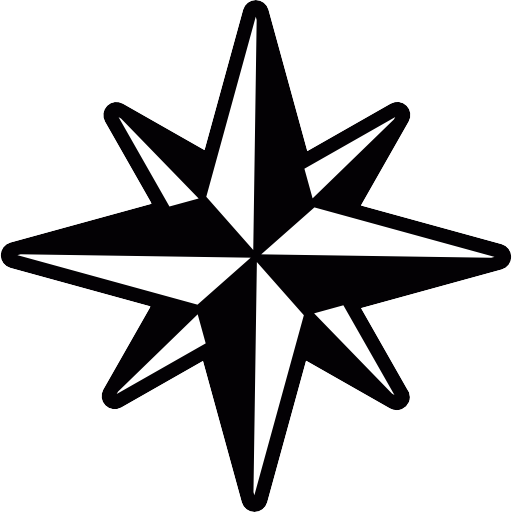 Solaris
Solaris 






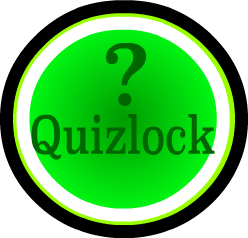


 Inferno
Inferno 